Admol 1G Tablet 10's
MRP ₹51.5
(Inclusive of all Taxes)
₹7.7 Cashback (15%)
Provide Delivery Location
Online payment accepted
 Prescription drug
Prescription drugWhats That
Composition :
Manufacturer/Marketer :
Consume Type :
Expires on or after :
Return Policy :
About Admol 1G Tablet
Admol 1G Tablet belongs to the group of medicines called analgesics (pain killers), and antipyretics (fever-reducing agents) used to reduce fever and treat mild to moderate pain. It is used to relieve headaches, migraine, toothache, period pain, back pain, muscle pain, and rheumatic pain. Pain and fever are caused by the activation of pain receptors due to the release of certain natural chemicals in the body like prostaglandin.
Admol 1G Tablet contains 'Paracetamol' that works by inhibiting the production of certain chemical messengers in the brain known as prostaglandins. Thus, reducing pain. Also, Admol 1G Tablet affects an area of the brain that regulates body temperature known as the hypothalamic heat-regulating centre. Thereby, it reduces fever.
Take Admol 1G Tablet as prescribed. Your doctor will recommend how often you need to take Admol 1G Tablet based on your medical condition. In some cases, Admol 1G Tablet may cause side effects such as nausea, stomach pain, and dark coloured urine. Most of these side effects of Admol 1G Tablet do not require medical attention and gradually resolve over time. However, if the side effects persist or worsen, please consult your doctor.
If you are allergic to Admol 1G Tablet or any other medicines, please tell your doctor. Admol 1G Tablet is not recommended for children below 6 years of age. If you are pregnant or breastfeeding, please consult a doctor before using Admol 1G Tablet . Avoid alcohol consumption with Admol 1G Tablet as it may increase the risk of liver damage. If you have an impaired nutritional state caused by anorexia (eating disorder), malnutrition, alcohol abuse, or if you are dehydrated, inform your doctor before taking Admol 1G Tablet .
Uses of Admol 1G Tablet
Directions for Use
Key Benefits
Admol 1G Tablet contains Paracetamol, an analgesic (pain killer) and antipyretic (reduces fever). It inhibits the production of certain chemical messengers in the brain known as prostaglandins. Thus, reduces pain. Also, Admol 1G Tablet affects an area of the brain that regulates body temperature known as the hypothalamic heat-regulating centre. Thereby, it reduces fever.
Storage
Drug Warnings
If you are allergic to Admol 1G Tablet or any other medicines, please tell your doctor. Admol 1G Tablet is not recommended for children below 6 years of age. If you are pregnant or breastfeeding, please consult a doctor before using Admol 1G Tablet . Avoid alcohol consumption with Admol 1G Tablet as it may increase the risk of liver damage. If you have an impaired nutritional state caused by anorexia (eating disorder), malnutrition, alcohol abuse or if you are dehydrated, inform your doctor before taking Admol 1G Tablet . Avoid taking more than recommended doses as it may increase the risk of serious liver damage.
Diet & Lifestyle Advise
- Get adequate sleep as resting the muscles can help in reducing inflammation and swelling.
- Acupuncture, massage and physical therapy may also be helpful.
- Eat foods rich in antioxidants such as berries, spinach, kidney beans, dark chocolate, etc.
- Foods containing flavonoids such as soy, berries, broccoli, grapes and green tea help in reducing inflammation.
- Maintain a healthy weight by performing regular low-strain exercises and eating healthy food.
- Avoid smoking and alcohol consumption.
Side Effects of Admol 1G Tablet
- Nausea
- Stomach pain
- Dark coloured urine
Habit Forming
Therapeutic Class
All Substitutes & Brand Comparisons
RX
Instaflex P Tablet 15's
Innovcare Life Sciences Pvt Ltd
₹62.5
(₹3.75 per unit)
19% CHEAPERRX
Instaflex P 1000 mg Tablet 10's
Innovcare Life Sciences Pvt Ltd
₹42
(₹3.78 per unit)
18% CHEAPERRX
Out of StockHenpar 300mg/700mg Tablet SR
Henin-Lukinz Pharma Pvt Ltd
₹43
(₹3.87 per unit)
16% CHEAPER
Author Details
We provide you with authentic, trustworthy and relevant information
FAQs
Admol 1G Tablet works by inhibiting the production of certain chemical messengers in the brain known as prostaglandins. Thus, reducing pain. Also, Admol 1G Tablet affects an area of the brain that regulates body temperature known as the hypothalamic heat-regulating centre. Thus, it reduces fever.
You are not recommended to take Admol 1G Tablet with warfarin as co-administration of these two medicines may increase the risk of bleeding more easily. However, if you are supposed to use these medicines together, you are advised to contact your doctor so that the dose may be adjusted appropriately to use safely.
Admol 1G Tablet may affect how certain tests work such as blood sugar tests and uric acid tests. Therefore, if you are about to undergo blood tests or any laboratory tests, inform your doctor or lab technician that you are taking Admol 1G Tablet .
You are not recommended to take Admol 1G Tablet with other paracetamol containing products as it may cause paracetamol overdose.
If you take more than prescribed doses of Admol 1G Tablet , it may cause overdose and lead to serious liver damage. The symptoms of overdose include vomiting, loss of appetite, stomach pain, paleness and nausea. However, if you notice any of these symptoms while taking Admol 1G Tablet , please consult a doctor immediately.
Drug-Drug Interactions Checker List
- WARFARIN
- CHOLESTYRAMINE
- ASPIRIN
- METOCLOPRAMIDE
- DOMPERIDONE
- CHLORAMPHENICOL
- RIFAMPICIN
- PROBENECID
- ISONIAZID
- LAMOTRIGINE
- CARBAMAZEPINE
- PHENYTOIN
Special Advise
If you have a high fever or signs of infection after using Admol 1G Tablet for more than 3 days or if pain persists after using Admol 1G Tablet for more than 5 days, please consult a doctor.
Disease/Condition Glossary
Pain: It is a term used to describe any unpleasant feeling or discomfort. It occurs due to nerve damage (in cases of backache, toothache, or muscle pain) or persistent stimulation (in headaches or migraine). Pain may vary from mild to severe, depending on the underlying condition.
Fever: It is an abnormal increase in body temperature due to infection, chemotherapy, or various disease conditions. If the body temperature is 98.6°F, it is normal and if it goes above 100.4°F (38℃), it is called fever or pyrexia. Body temperature is increased in response to infection or varied problems to protect the body. Flu is one of the most common causes of fever.

Have a query?
Alcohol
Safe if prescribed
You are recommended to avoid consumption of alcohol with Admol 1G Tablet as it may cause severe liver damage.
Pregnancy
Consult your doctor
Please consult a doctor if you are pregnant or planning for pregnancy before using Admol 1G Tablet . Your doctor may prescribe the lowest dose of Admol 1G Tablet and for the shortest duration if you are pregnant.
Breast Feeding
Consult your doctor
Admol 1G Tablet may be excreted in small amounts in breast milk. Therefore, please consult a doctor before using Admol 1G Tablet if you are breastfeeding.
Driving
Safe if prescribed
Admol 1G Tablet usually does not affect your ability to drive or operate machinery.
Liver
Consult your doctor
Take Admol 1G Tablet with caution, especially if you have a history of liver diseases/conditions. The dose may be adjusted by your doctor as required.
Kidney
Consult your doctor
Take Admol 1G Tablet with caution, especially if you have a history of kidney diseases/conditions. The dose may be adjusted by your doctor as required.
Children
Safe if prescribed
Admol 1G Tablet is not recommended for children below 6 years of age.

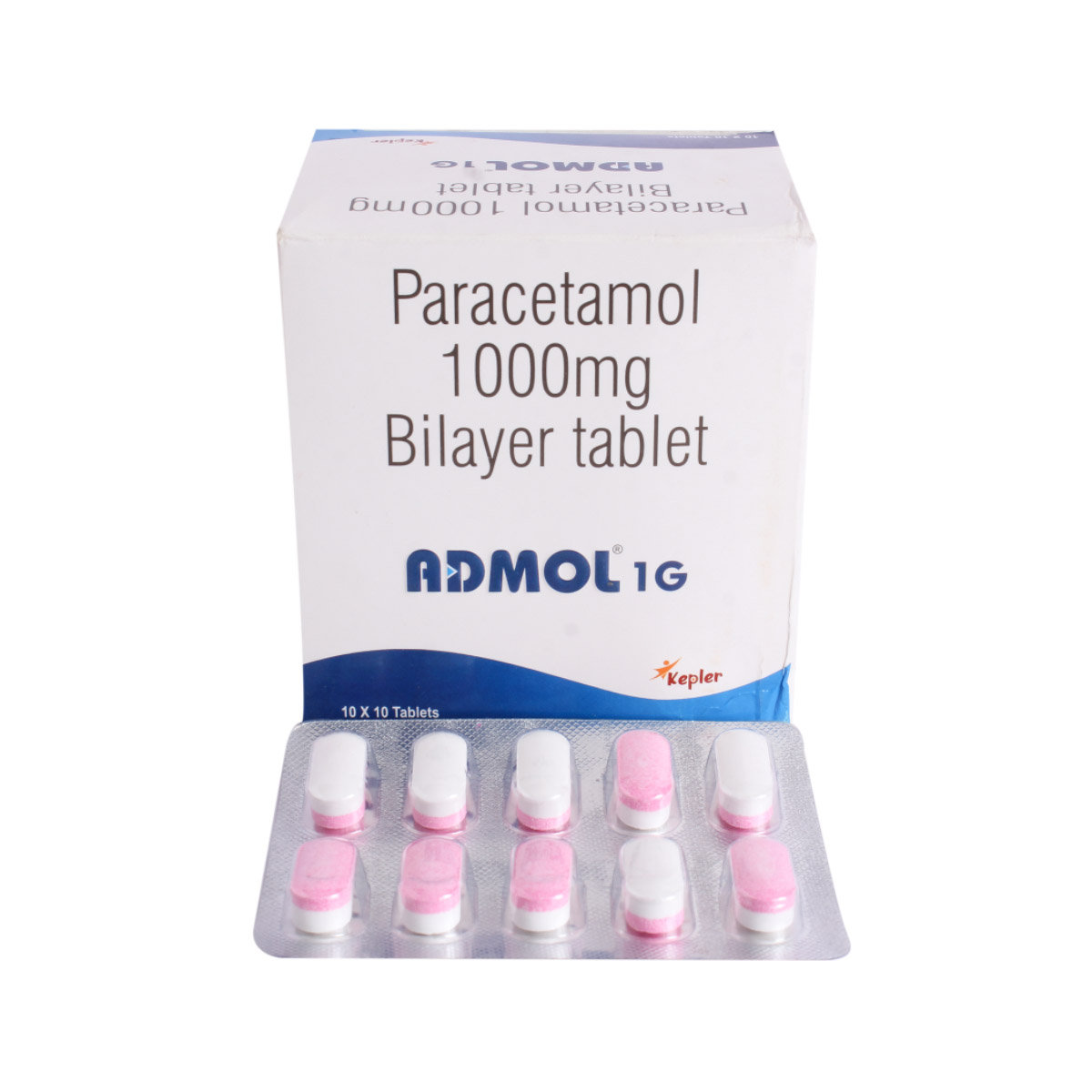
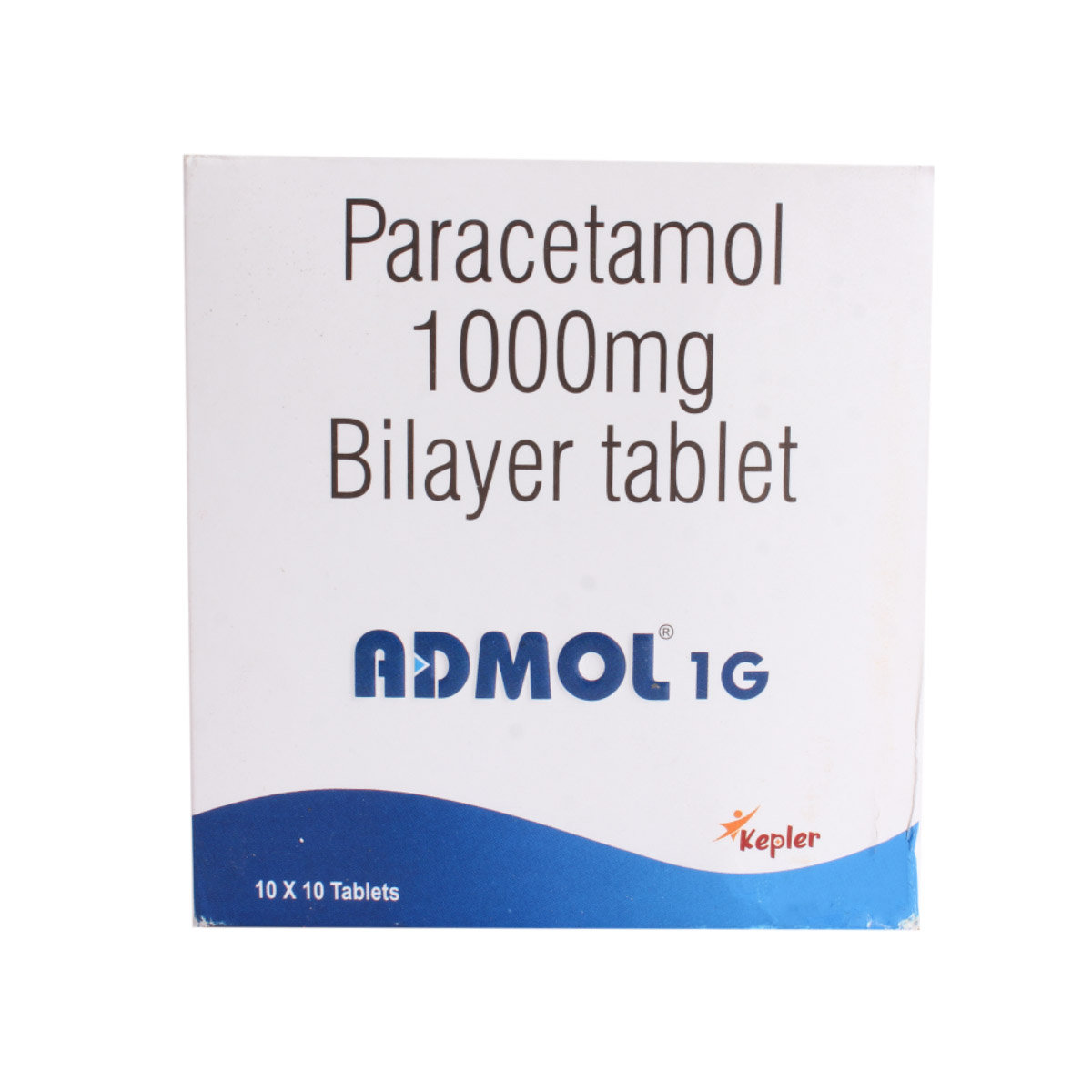
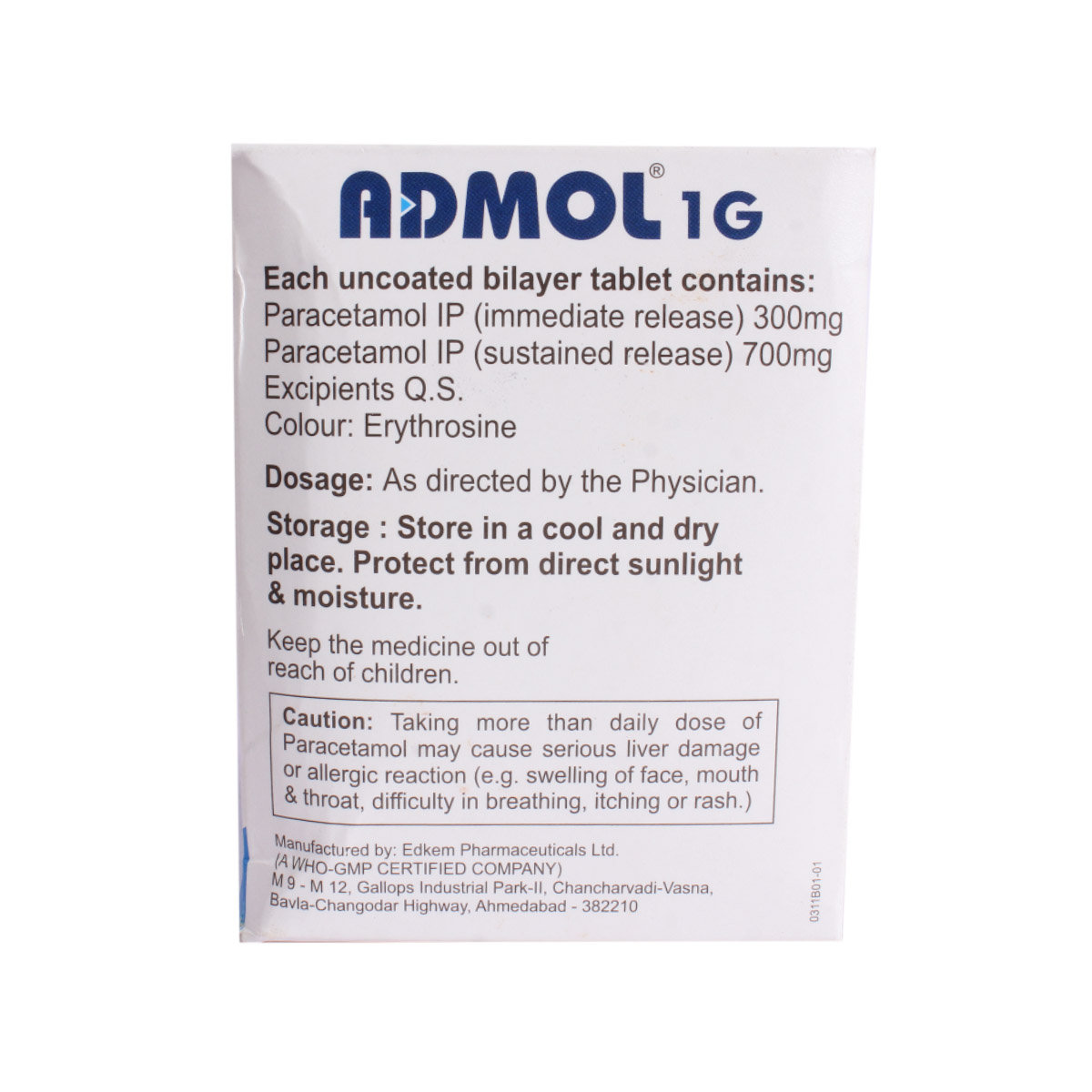





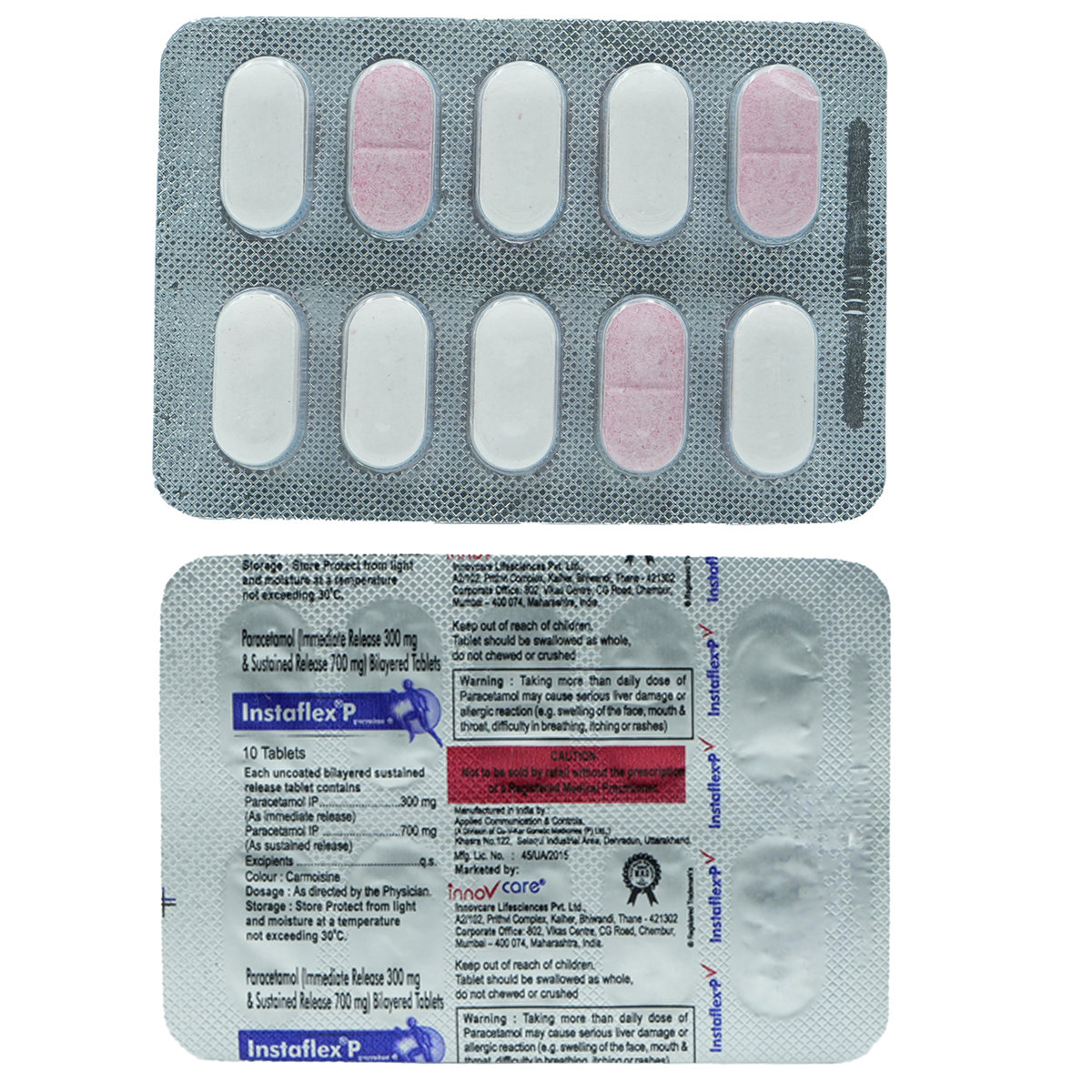



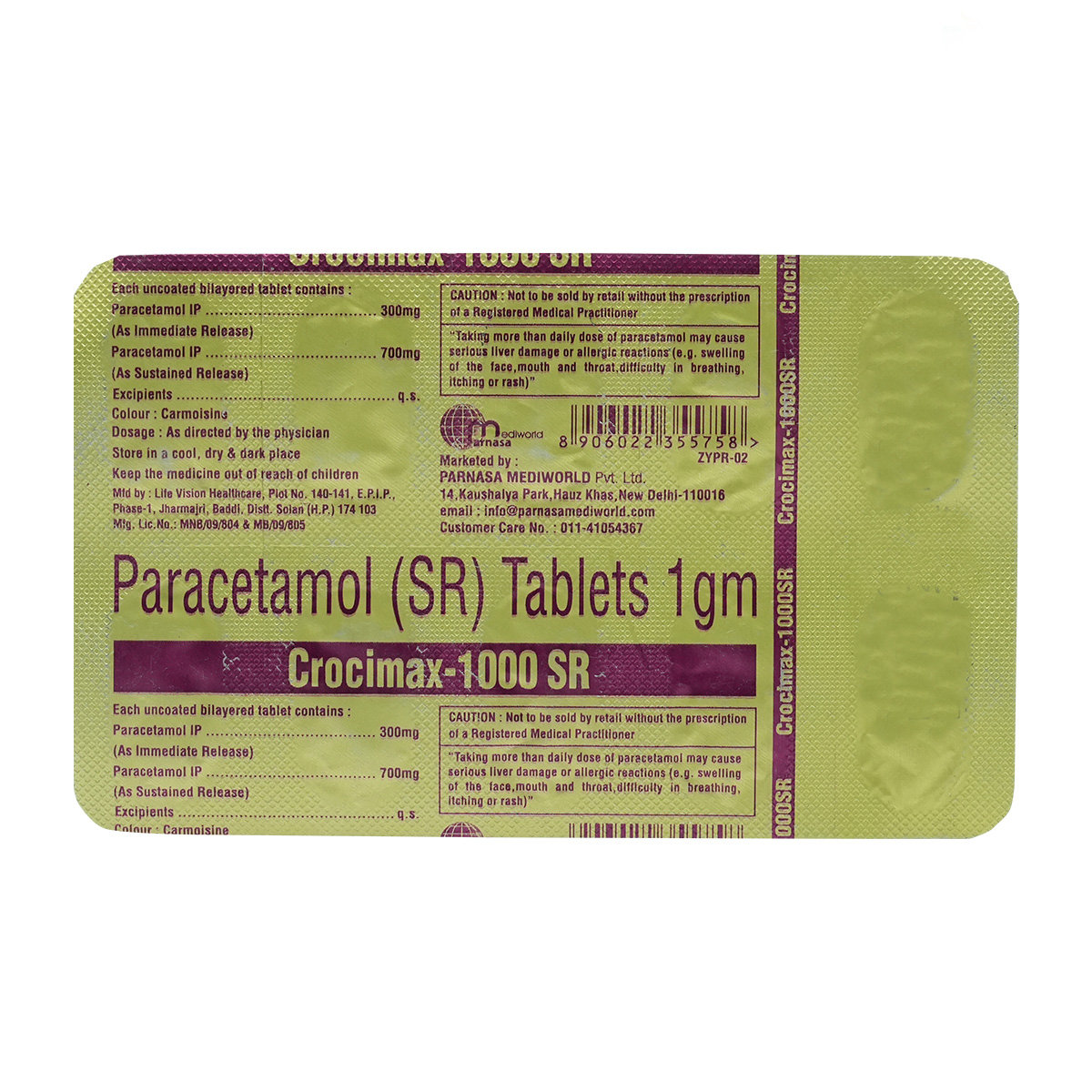


_0.jpg?tr=q-85)
